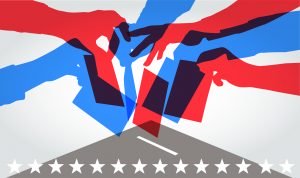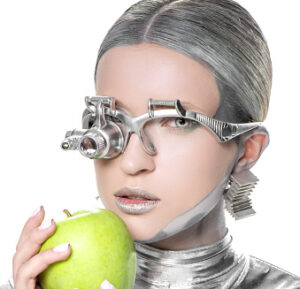
During the initial months of the Covid-19 pandemic, insurers saw profits rise, even double, as patients cancelled surgeries and postponed care. This has left insurers to explain their various pandemic response efforts in an election year where a public option could be on the table.
UnitedHealthcare saw its net profits jump from $3.4 billion in 2019 to $6.7 billion for the second quarter of 2020, with Anthem and Humana also seeing their bottom lines double. Aetna, which was acquired by CVS Health in 2018, also contributed to its parent company’s rising profits, with the segment’s operating income increasing from $1.06 billion last year to $3.07 billion in 2020.
As they set premiums for next year, insurers will have to walk a tight line between not setting rates too high, triggering premium rebates, while not underestimating future costs related to care that might have been deferred today.
“They’re going to be walking this fine line where they don’t want to make too much money or price too high. On the other hand, they’re still going to want to be competitive,” Fitch Ratings Senior Director Brad Ellis said in a recent panel discussion.
The Affordable Care Act requires health insurers to spend at least 80% of their premium income of healthcare claims and quality improvement, limiting the amount that can go to administration and profit. When healthcare spending falls below that threshold, they’re expected to pay members back in premium rebates, calculated over a three-year period.
Based on what they spent in 2017, 2018 and 2019, insurers are expected to repay $2.66 billion to 7.9 million members in 2020, according to an analysis by the Kaiser Family Foundation (KFF).
“Insurers have already paid back record rebates in the past two years. It’s reasonable to expect that would continue,” said Daniel McDermott, a research associate with KFF.
If healthcare spending so far this year is any indication, more rebates are likely in the future. Insurers saw utilization rates drop between 30% and 40%, as elective procedures were cancelled and patients opted to stay at home. They also saw medical loss ratios — the amount that they spend on claims — fall to new lows, with UnitedHealthcare reporting a ratio of 70.2% and Aetna seeing its ratio fall to to 70.3% in the second quarter.
Some patients might also see funds this year in the form of premium credits. Earlier this month, the Centers for Medicare and Medicaid Services said it would allow insurers in the individual and small group markets to temporarily offer premium credits to help people who might struggle to pay premiums due to the current health crisis.
Setting premiums for next year
Given the sudden drop-off in care, one might expect premiums to decrease next year. But that’s not necessarily the case.
Based on individual market plan data from 10 states, so far, a modest increase is expected for next year, McDermott said. The median increase was 2.4%, but rates ranged from an 11% decrease by the Kaiser Foundation Health Plan in Maryland to a 31.8% increase by New Mexico Health Connections, which recently announced that it would cease operations at the end of 2020.
“Most insurers have held off from making assumptions about Covid-19 in their preliminary filings,” he said. “A lot of insurers are still in wait-and-see mode.”
Payers are still trying to factor in the costs of a vaccine, a potential second wave of Covid-19 in the fall, lasting effects of the disease itself, and costs related to deferred care.
Since the start of the summer, patients have started coming back quickly, though insurers still haven’t seen the “pent up demand” for care that they had expected.
“Although it’s started to tick up a bit, health spending is still 10% lower than it was last year,” McDermott said.
It’s difficult to forecast how that will change in the next year.
Industry lobbying group America’s Health Insurance Plans estimates treatment costs for Covid-19 could range from $30 billion to $547 billion over the next two years.
“The second half of the year could see a lot more care, and higher costs, than the first half of 2020,” AHIP wrote in a blog post. “However, if these costs never materialize and remain below certain levels, American consumers, businesses, and taxpayers are protected by provisions in federal and state laws that require health insurance providers to deliver premium rebates and put money back into their pockets.”
Membership changes
For insurers, the biggest threat is long-term changes to their membership if more patients lose their job-based insurance. So far, that effect has been less than expected at the beginning of the pandemic.
UnitedHealthcare, for example, saw its commercial enrollment decrease by 2%.
“The impact on commercial enrollment hasn’t been as great as we would have otherwise thought based on the unemployment data, just because of the stimulus as well as the furloughs,” CEO David Wichmann said in an earnings call.
Anthem also reported a less-than-expected decrease in commercial enrollment of 290,000 members, while its Medicaid enrollment increased by 15%. That said, its executives said they expect a decrease in commercial membership when federal assistance ends.
“I want to be clear, we do expect further declines, assuming the economy continues to operate at less than full capacity,” CEO Gail Boudreaux told investors.
Centene, which is a big provider of Medicaid and ACA marketplace plans, actually had raised its revenue guidance for 2020 by $6 billion, based on unemployment trends. But it recently adjusted its expectations down by $500 million, noting that membership at lower rates than it had initially expected.
That leaves one big variable: the upcoming election. That could spell out the future for the Affordable Care Act, the recent outcropping of Medicare Advantage plans, or potentially even a public option.
“The election is a huge issue for health insurers. Who gets into the White House is very important, whether it be from the standpoint of Medicare for All, or whether it be the extent to which the Medicare Advantage program itself is supported as it has been under the Trump administration,” Ellis said. “Assuming there’s no change in terms of a public option or the overall healthcare system, we expect insurers to return to baseline run rate margins.”
Photo credit: TAW4, Getty Images



 Kathryn Rubino is a Senior Editor at Above the Law, and host of
Kathryn Rubino is a Senior Editor at Above the Law, and host of 















 Tom Kulik is an Intellectual Property & Information Technology Partner at the Dallas-based law firm of
Tom Kulik is an Intellectual Property & Information Technology Partner at the Dallas-based law firm of